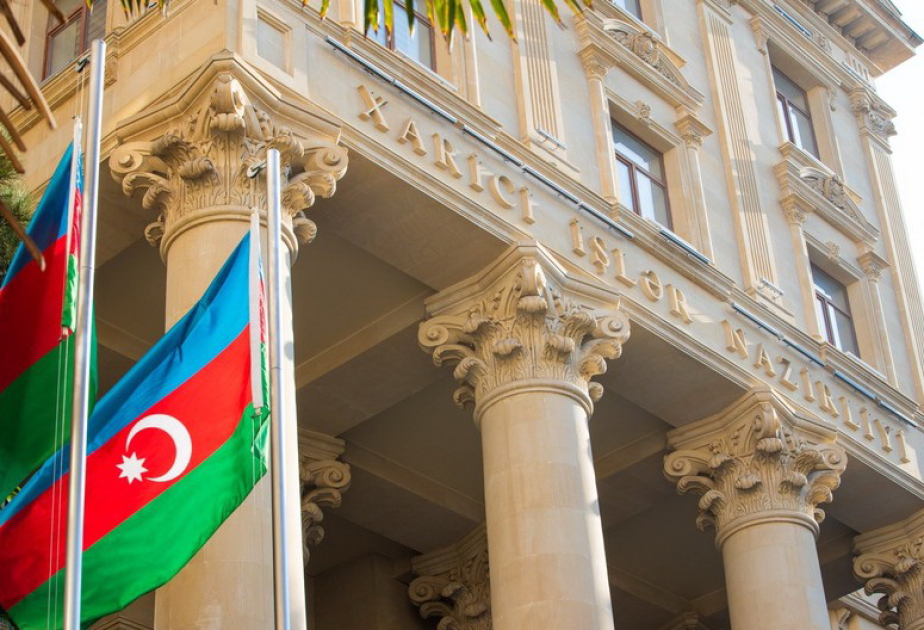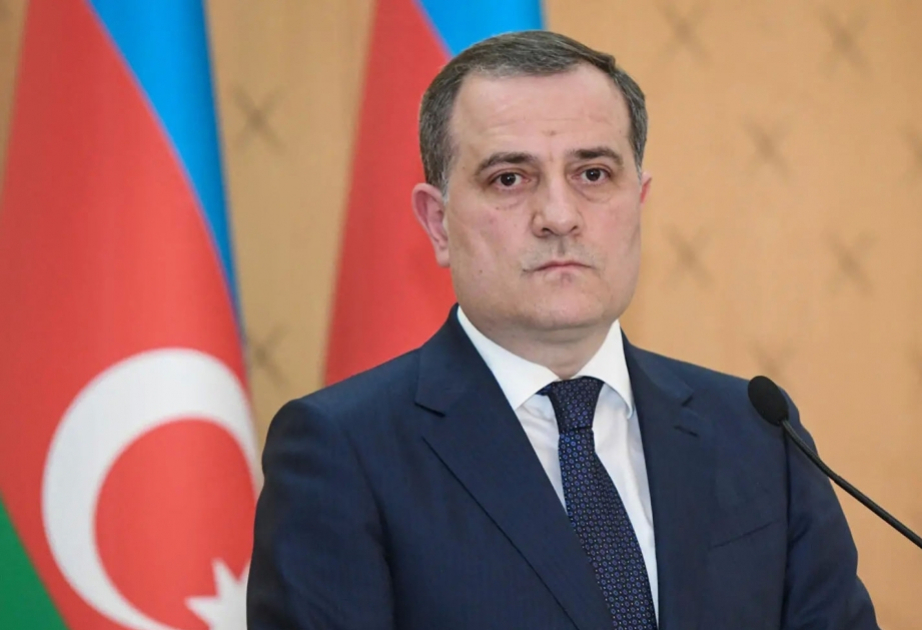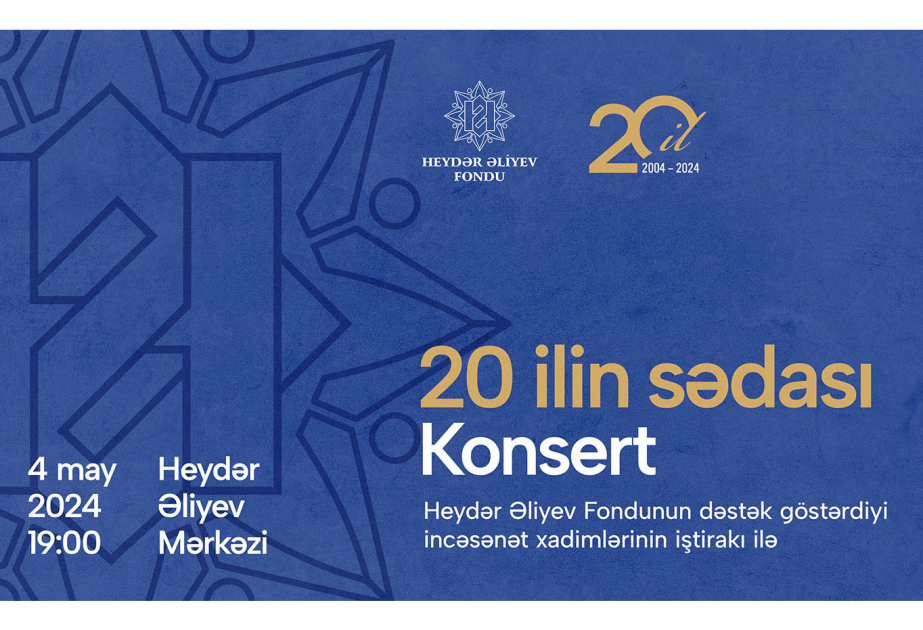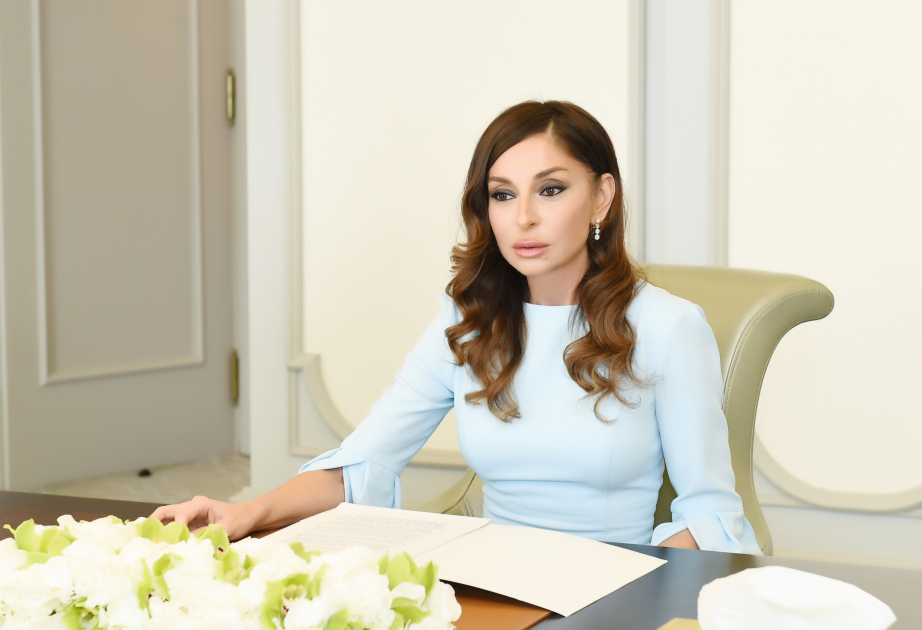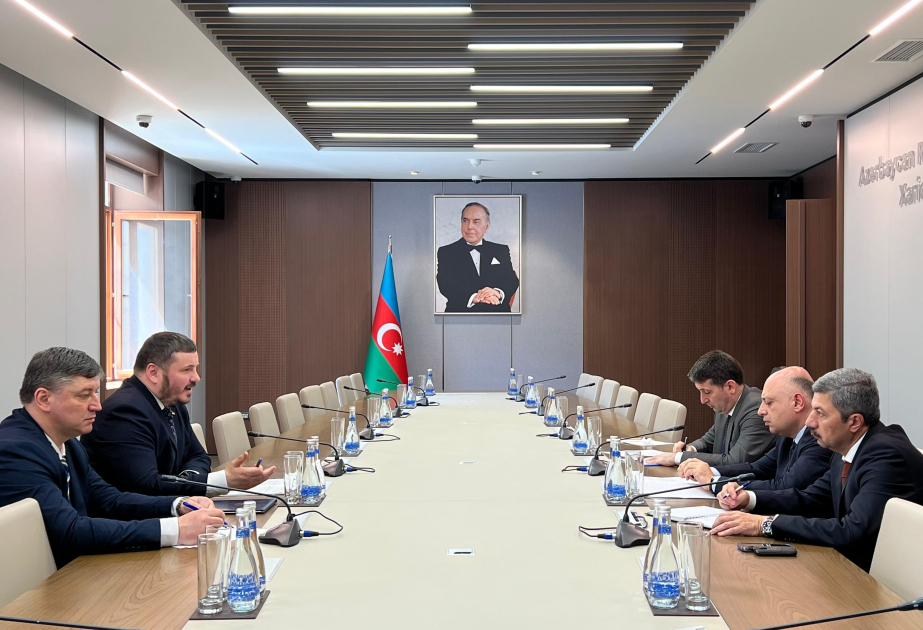POLITICS
On migration processes in modern history
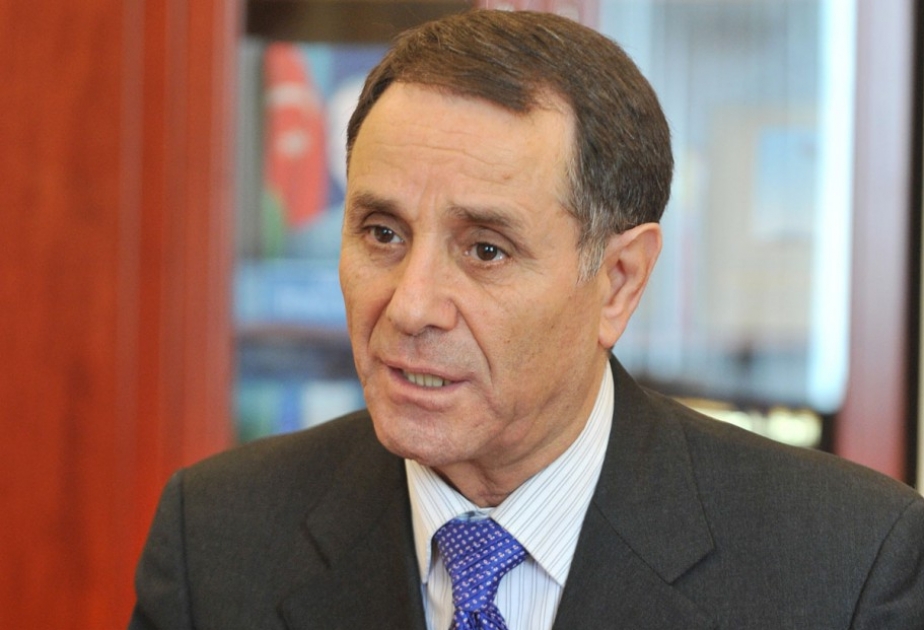
Baku, August 8, AZERTAC
Characterized by tensions, confrontations, a special nature and scope of problems, the first decades of the 21st century will undoubtedly go down in the history of international relations. Never previously players such as transnational corporations, various NGOs, media outlets, terrorist organizations, which got a new status in a tough global competition of superpowers in geopolitical, political, economic, cultural and other areas, have so overtly grown into larger and influential players. The problems caused by this process are very obvious: international law that is considered “the code of conduct” in the system of international relations is only verbally mentioned and remains on paper, the concept of justice is disappearing at the levels of human beings and states, the number of crisis-hit regions and territorial conflicts is steadily growing, the gap between rich and poor is becoming wider.
One of the modern era’s most obvious problems is the migration process. This topic has dominated the global political agenda recently, with the “migration crisis” and “refugee crisis” being the most commonly used terms in the media and political debates. Many people suffering from armed conflicts, terrorist attacks, severe economic and political problems especially in the Middle East and Africa are forced to leave their homes and move to foreign countries. The main destination of this mass migration is a socially and economically alluring and relatively close Europe. The mere fact of the number of migrants to Europe increasing six times from 300,000 to two millions in 2014 alone is evidence of the huge scale of the migration process. And the number grew in the following years. But these figures do not feature those who moved to non-European countries or died from famine and infections en route, and those who drowned in the Mediterranean Sea.
The other face of the crisis is the challenges migrants face in Europe. The cases of famine, deprivation, humiliation, inhumane treatment of migrants became common against a background of Europe’s reluctance to receive migrants and the increasing intolerance among the local population. Maybe, some EU member states think that it is fair to not receive migrants. But given that the EU set itself a goal to become an established political, economic and cultural system, all the responsibilities and obligations should be shared accordingly.
Having continued throughout history, migration, particularly labour migration has been presented as a progressive process in the Western scientific literature. It is described as an irreplaceable resource for ensuring any society’s development and renewal (countries receiving migrants). The countries facing a demographic crisis are involved in a tough competition for human resources.
Although previously large-scale, migration has never reached this scale and has never sparked widespread discontent like now. On the contrary, it was welcomed. But now in many cases those who are forced to migrate from the Middle East and Africa are denied help on the grounds of ethnicity and religion. Armed conflicts are indicated as the only reason for migration, while in reality the main factors causing mass migration are political instability, social injustice, severe economic and environmental conditions.
To understand the main reasons behind today`s significant scale of migration one should look at similar processes in the past, draw parallels, and determine similarities and differences. Why have the vast majority of those who left their countries and migrated over the past few centuries been Asians and Africans? Which factors force them to leave their ancestral homes? Why despite rich natural resources, the standard of life in those countries is unreasonably lower than in the West? A comprehensive study of these issues will undoubtedly be helpful in explaining modern migration processes.
One of the main points worth paying attention to is that the majority of countries where migrants and IDPs come from have a common feature – they are former colonies of the West. It should be noted that armed conflicts and the migration crisis in the Middle East and instability in the international system caused by all these factors have prompted a new wave of debates in political and academic circles on colonialism.
On the policy of colonialism and stages of migration processes
Western countries are undoubtedly at an advantage in comparison with other countries in terms of political, economic, social, scientific and technological achievements. And they seem to be capable of keeping this advantage, which formed over many years, for long. This is also confirmed by the ongoing global processes. The current political and economic situation paves the way for the expansion of the gap between rich and poor. It is no coincidence that in a number of countries globalization is considered to be a feature of a modern form of colonialism.
This raises a question: At the expense of what did the West gain this advantage? It is a fact that at different stages of history the West was falling behind the East, particularly the Islamic world, in all aspects. For example, the East was home to many scientific discoveries and inventions, which played a crucial role in the development of humanity, and these discoveries and inventions were applied in the West several centuries later. Europe did not have any advantage until the 16th century. But it should be admitted that only after mastering and applying the East-made discoveries and inventions European countries succeeded in carrying out a socio-economic revolution in the society`s life. Then colonialism contributed to the development of these accomplishments.
Another interesting point is why the countries, which were colonies of Britain, France, Spain, Portugal and other states for several centuries, are still living in miserable conditions. Why haven`t these countries achieved any tangible progress in the past centuries? The reason is that the great powers that colonized them exploited their natural resources to enrich themselves and ensure their own development. It is an undeniable fact that the majority of historical and cultural monuments kept in European museums and located in European squares belong to Asian and African countries. Unfortunately, European colonizers pursued only their own interests and prevented their colonies from even establishing fundamental factors necessary for ensuring their development in the years of independence. There is certainly no need to prove that this factor was among the major reasons why the former colonies are now living in poor conditions.
Studying the role and impact of natural disasters (quakes, floods, droughts, etc.) is very crucial for the examination of the history of migration processes. But our goal is to study the migration process in the context of colonialism, to focus on how the migration process was subordinated to imperial and geopolitical interests.
A deeper look at the migration process in the context of the policy of colonialism necessitates pointing out three different stages of this process from the perspectives of its scale and nature. And a common feature linking these three stages is that the migration process is managed to serve a single goal.
The first stage, which spanned 16th-20th centuries, is remarkable for the formation of the trends capable of giving a boost to the migration process, rather than for the mass nature of the process. With the occupation of Asian, African and Latin American countries the exploitation of natural and human resources of colonies through economic, political and military methods became widespread. This led to the enrichment of the Western countries and stimulation of their political, economic, military, scientific and cultural development, while the political and economic situation in colonies started to deteriorate rapidly. It is certainly extremely difficult to maintain colonies at your own expense. This marked the beginning of the process of subordination of the migration process to colonial interests. At that stage the migration process served two goals. The first was the exploitation of the colonial population as slaves in Europe and America. The second goal was to keep control over the colonized areas and instill one`s language, culture and governance systems in indigenous people through making them play the role of a bridge between mother countries and colonies. Established at different stages with the involvement of colonies, organizations such as the Commonwealth of Nations (United Kingdom), International Organisation of La Francophonie (France), the Organization of Ibero-American States (Spain), Community of Portuguese Language Countries (Portugal) emphasize the importance of the applied mechanisms from the perspective of colonial interests.
The second stage covers the years of the Cold War. Although the end of the World War Two marked the collapse of colonialism and the formation of a new system of international relations, there were not any considerable changes in the Western countries` colonial views.
The fact that young independent countries are labelled by the West as countries of the “third world” is indicative of this. The mechanisms applied in relations with these countries were built based on the West`s political and economic interests. Instead of spontaneous exploitation of natural resources of colonies, neocolonial governance is seen as operating through indirect forms of control and, in particular, by means of the economic, financial, and trade policies of transnational corporations and global and multilateral institutions.
Having gathered pace at that time, migration was a process aimed at keeping control of former colonies. After the World War Two European countries experienced a massive economic boom, with an increased demand for labour. On the other hand, the ageing local population and the abundance of cheap labour in countries outside Europe necessitated Western states encouraging migration from the countries of the “third world”. Interestingly, each European country gave preference to migrants from its own former colony. Migrants had to play the role of a bridge between mother countries and colonies, which helped maintain political and economic control over subject nations.
It is no coincidence that the concept of multiculturalism entered the political lexicon in Europe exactly at that time. Although, prima facie, this ideology is seen as respecting values and cultural and religious differences of migrants in their “new motherlands”, in reality it was a scheme to ensure their assimilation and integration into the European values on the one hand, and to use them as elements of a cultural bridge when they return to their own countries. This proves that the Western multiculturalism promotes the Western values as the universal ones and serves colonial interests.
The third stage embraces the period after the West`s victory in the Cold War following the dissolution of the Soviet Union and the Warsaw Treaty Organization. This stage saw the West emerge as a sole dominant power in the world and make every possible effort to completely fulfill its geopolitical and economic interests and gain total control over global human and natural resources.
Having remained in the background and in the shadow of the United States in the new international relations system, Europe managed to benefit from this system as much as the USA did.
The disbandment of the Warsaw Pact allowed Europe to broaden its borders and get economic profit thanks to Eastern European countries. This stage marked Europe`s massive economic boom generated by the new markets and cheap labour coming from the countries that were forced to share the same values with Europe. When Eastern European countries were given the opportunity to join an “inclusive Christian club” no one asked if they were prepared for a new integration model. What happened later showed that there even was no need for any preparedness. Under the pretext of liberalization, the West privatized industrial sectors of Eastern European countries with the aim of destroying their economies and eliminating competition. National economies of less-developed new members were declared open for a free and unequal competition with stronger economies, which resulted in the collapse of many vital production areas in those countries. The new members were forced to play a primitive role of export markets. A wave of Migration caused by these processes did not catch much attention. Then the idea of free movement of labour in the European Union was put forward. In reality, the problem of unemployment, which was caused by the downturn in internal production in Eastern European countries, was solved through migration of the most educated and skilled part of their labour to Western European countries in search of a better life and employment. There were hundreds of thousands of such migrants.
All the stages of the migration process have common features. At all the stages, the processes were orchestrated by European states based on certain rules, frameworks and numbers. Regardless of how it was named, the process pursued one primary goal – to ensure political and economic interests of Europe.
But what happened in the 21st century proved that the West`s calculations were incorrect and that this policy can no longer be pursued and ensure its political, geopolitical and economic interests.
Migration against a background of geopolitical tensions: is there a way out?
2015 was called the year of the second Migration Period. And it’s not surprising. The number of people who are forced to leave their homes in the Middle East and Africa is enormously large. Europe is experiencing one of the most significant influxes of migrants in its history. The major difference of this migration crisis from the previous ones is that the West can no longer control it in line with its interests, including colonial ones.
Scientific literature defines two forms of migration – political and economic. Among the reasons behind political migration are the collapse of political regimes, military conflicts, etc. But this classification embraces a very narrow framework, and does not completely reflect ongoing migration processes. Taking into account the root causes of the current mass migration, it would be more rational to call it “geopolitical migration”. The overthrow of regimes, the Arab Spring, the activities of terrorist groups in countries like Iraq, Libya and Afghanistan prompted the spread of migration, paving the way for serious changes in a wider region.
European leaders are now elaborating different programs in order to stabilize the situation, but these programs are temporary ones. There is considerable uncertainty about the future of migrants. Is it possible to ensure their integration into society? Or should they be sent back to their war-torn homelands? To what extent does this correspond to human rights ideals?
The fact that European countries are helpless against a new wave of mass migration shows that they were unprepared for this challenge. Anyway, no one could expect that the wrong policy would have produced so many side effects. Given that the programs developed by European countries aim to eliminate the consequences of the process, rather than getting to its root causes, they are doomed to failure.
In reality, it was possible to forecast that the events would take such a turn. Although initially Europeans considered migration as a temporary process that served their interests and that could solve demographic problems, it later turned out that this policy could produce a number of side effects.
One of the most vital points at that time was that the fiasco of the European multiculturalism run in parallel with the growing Islamophobic trends. Unlike their predecessors, representatives of the younger generation of migrants are committed to preserving their cultural and religious values, which runs totally contrary to the concept of ‘universal values’ promoted by Europe. The declining living standard and the increasing levels of poverty and unemployment encouraged Europeans` intolerance towards migrants as well as the growth of internal tension.
In 2010-2011, leaders of France, Germany and the United Kingdom started to admit that multiculturalism, which they had been using as a pretext, did not justify their hopes. This means that liberal, democratic values, human rights principles advocated by European countries serve only their own interests and multiculturalism promoted by them was based solely on geopolitical principles.
This reality is undeniable. Europe could have succeeded in promoting “universal values”, which became its pressure mechanism, only if the principle of justice in international relations, international law, resolutions of the UN Security Council were not ignored. Voluntaryism and “what we say goes” principle that have dominated in the past 30 years are major reasons behind ongoing unprecedented global tension.
Europeans now live in constant fear of losing their Christian values caused by the fact that the majority of migrants are Muslims and that the number of Muslims in Europe is rapidly growing. Born as a result of the West-orchestrated scenarios in different parts of the world, terrorist groups are stepping up attacks on Europe, which encourages Islamophobic trends. This helps ultra-nationalist forces gain more influence among people by labeling Islam as a dangerous ideology and building their propaganda on anti-migrant and anti-Muslim slogans. But this is yet another source of threat to a “liberal Europe”.
Therefore, the ongoing migration process should not be studied only in the context of Europe`s geographical borders or socio-economic situation. This process also has great significance for the credibility of the principles of democracy and human rights, which the West is trying to promote globally as universal principles. The West`s decisions on the future of migrants are a test of its commitment to the values it advocates.
The migration process is one of the most important problems facing the international community. Other causes of this problem include different conflicts, which remain unresolved for many years, instability and externally-orchestrated internal conflicts in several countries. According to observations, no steps have been taken to address these problems in the past 20-30 years. On the contrary, the situation deteriorated to pose a global threat and cause global tension.
Unfortunately, the great powers as well as international and regional organizations and institutions that they control have been the major players both in the emergence of important problems and in their solution. And their primary goal has been to ensure own political, geopolitical and economic interests.
However difficult to be solved, there is an apparent way out of this situation. It is time to stop treating countries like “former colonies” and trying to ensure justice in one`s interests. These factors are certainly major reasons behind all problems facing the international community.
Reviewing the policy that it has been pursuing in the Middle East and Africa for centuries, making a fair judgement about and accepting responsibility for this policy could be a good start for the West. But such a belief is characteristic of an idealistic approach. A fair attitude is possible only in a strong international relations system, which respects the rule of law, territorial integrity and sovereignty of states, and human rights principles.
We will probably be forced to acknowledge the rightness of the views of French writer and philosopher Michel Onfray who said: “Everyone has knowledge of the Egyptian pyramids, Greek temples and Roman forums. A deep study of the traces of ancient civilizations reveals the reasons that led to their disappearance. Apparently the 2000-year-old Jewish-Christian civilization will be no exception and suffer the same fate.”
Novruz Mammadov
